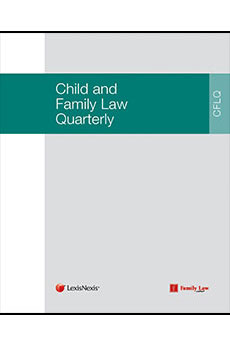Our articles are written by experts in their field and include barristers, solicitors, judges, mediators, academics and professionals from a range of related disciplines. Family Law provides a platform for debate for all the important topics, from divorce
and care proceedings to transparency and access to justice. If you would like to contribute please email
emma.reitano@lexisnexis.co.uk.
Children’s social care spending ‘unsustainable’
© Copyright LexisNexis 2025. All rights reserved.
The Institute for Fiscal Studies (IFS) has found that there has been a ‘significant reorientation of spending towards statutory help for children in crisis’, and that children’s services spending has been ‘largely frozen’ since 2009/10.
Other findings of the
Public Spending on Children in England: 2000 to 2020 report, published by the Children's Commissioner for England, Anne Longfield, include:
- spending on local authority-delivered children’s services doubled over the 2000s, but is due to fall back by about 20%;
- overall education spending increased considerably during the 2000s and has been largely protected since 2010, but this disguises cuts to funding for 16-18 education of around 17% between 2009-10 and 2019-20 – this means sixth form and further education spending per student will be at the same level in 2019-20 as it was in 1989-90;
- total benefits spending for families with children in 2019-20 will be £57bn, 43% above the level of £40 bn in 2000-01, but a fall of 11% since 2009-10; and
- the rate of child poverty today is around double the rate of pensioner poverty.
Article continues below...
Child and Family Law Quarterly
"The final professional word for the practitioner...
£80
A Child's Journey Through Contemporary Issues in Child Protection
Provides clear, authoritative commentary on good...
£60
Anne Longfield said: ‘This analysis shows that while overall public spending on children has been broadly maintained over the last twenty years, millions of vulnerable children who are not entitled to statutory support will be missing out because of the huge cost of helping a small number of children who are in crisis.
While every child should receive the support they need, the economic and social costs of this current strategy are unsustainable. The cost to the state is ultimately greater than it should be and the cost to those vulnerable children missing out on support will last a lifetime.'







